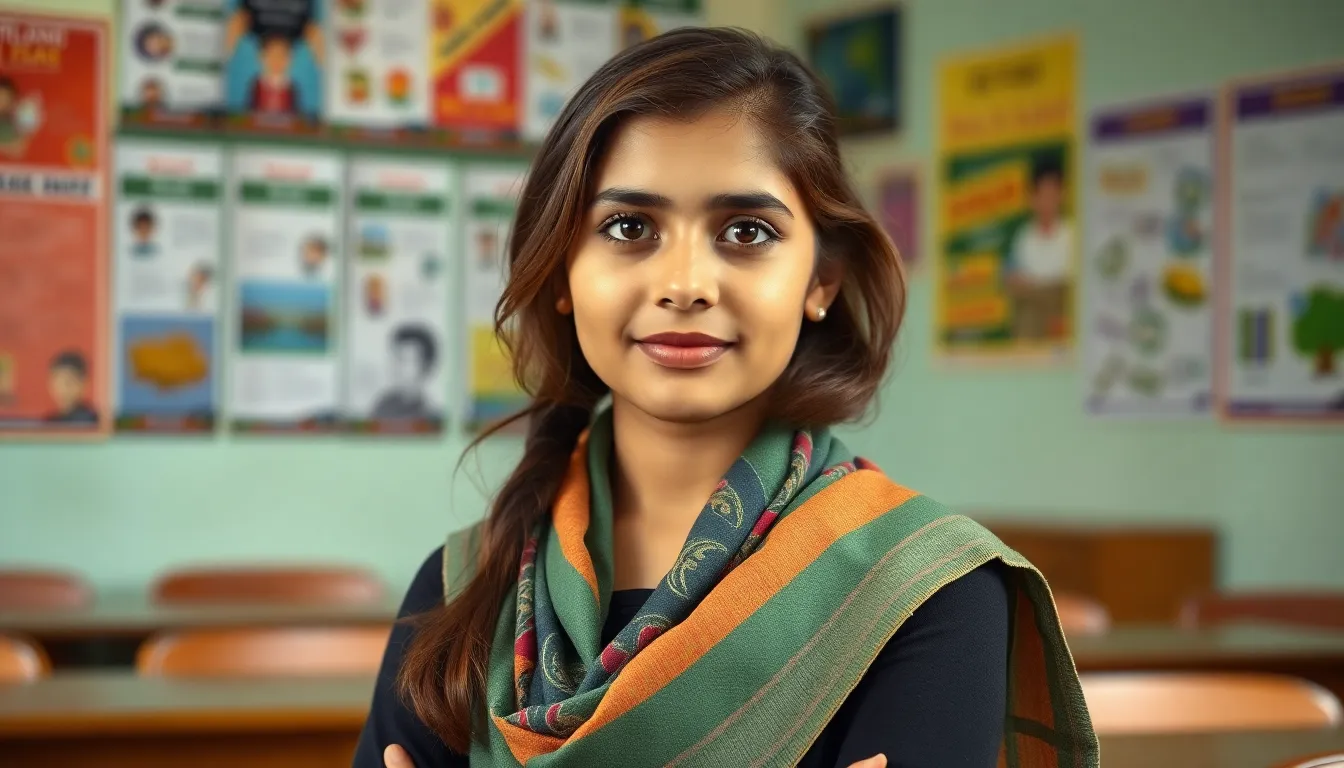Imagine being a teenager and winning a Nobel Peace Prize. Sounds like a plot twist from a feel-good movie, right? Yet, this is the incredible reality for Malala Yousafzai, who became the youngest laureate at just 17. Her journey from a classroom in Pakistan to the global stage is nothing short of inspiring, proving that age is just a number when it comes to making a difference.
Malala’s story isn’t just about accolades; it’s a powerful reminder that courage and conviction can challenge the status quo. She’s not just advocating for education; she’s rewriting the script on what it means to stand up for one’s beliefs. In a world where young voices often go unheard, her achievements shine a spotlight on the potential of youth to drive change. Buckle up as we dive into the remarkable life of the youngest Nobel Peace Prize winner and explore how one person can ignite a movement.
Table of Contents
ToggleBackground of the Nobel Peace Prize
The Nobel Peace Prize originated from the vision of Alfred Nobel, a Swedish inventor and philanthropist. Established in 1901, the prize honors individuals or organizations that significantly contribute to world peace. The Norwegian Nobel Committee oversees the selection process, emphasizing efforts that spread brotherhood, promote disarmament, and foster peace conferences.
Over the years, the prize has recognized a range of peace advocates. Recipients include prominent figures like Martin Luther King Jr., Mother Teresa, and Nelson Mandela. Various organizations, such as the International Committee of the Red Cross and the United Nations, have also received awards for their humanitarian efforts.
Significant trends emerged since the prize’s inception. Increasingly, young individuals like Malala Yousafzai have garnered attention for their impactful contributions. With a focus on education, her activism highlights the power of youth in catalyzing social change.
Nomination processes vary yearly, with strict guidelines in place. The committee considers nominations from a diverse set of eligible proposers, including national politicians and university professors. Recipients receive a medal, a diploma, and a financial reward, which varies by year.
The Nobel Peace Prize remains a prestigious symbol of hope and a reminder that dedicated individuals can make substantial changes. Continually, it reflects evolving global issues, emphasizing both individual and collective efforts toward establishing peace and justice worldwide.
The Youngest Nobel Peace Prize Winner

Malala Yousafzai became the youngest recipient of the Nobel Peace Prize at age 17. Her journey from a classroom in Pakistan to global recognition highlights the impact of youth advocacy for education.
Profile of Malala Yousafzai
Born on July 12, 1997, in Mingora, Pakistan, Malala Yousafzai demonstrated a passion for education early in life. Influenced by her father, a school founder, she began blogging for the BBC Urdu in 2009. Focused on girls’ right to education, her writings gained international attention. At 15, she survived an assassination attempt by the Taliban, raising her profile further. Today, Malala is a leading voice for educational reform. She co-founded the Malala Fund, which aims to empower girls through education worldwide.
Achievements Leading to the Award
Malala’s advocacy for education garnered global recognition even before her Nobel Peace Prize victory. She addressed the United Nations Youth Assembly in 2013, emphasizing the importance of education for all children. Authoring the memoir “I Am Malala” further amplified her message and reached diverse audiences. In 2014, the Nobel Committee honored her alongside Kailash Satyarthi for their contributions to children’s rights. Malala’s initiatives funded educational projects across developing nations, showcasing her commitment to creating change. Her work continues to inspire countless individuals to champion education as a fundamental right.
Impact of Her Work
Malala Yousafzai’s impact extends far beyond her early advocacy. She champions education not only in her homeland but also on a global scale.
Advocacy for Education
Malala Yousafzai’s advocacy for education centers on the belief that every girl deserves access to learning. Her efforts include raising awareness about the barriers girls face in accessing education, from poverty to cultural norms. Through the Malala Fund, she supports initiatives that provide scholarships and resources for girls. Programs funded by her organization target regions with the lowest enrollment rates, aiming to empower young girls. Influencing countless young advocates, her journey underscores the transformative power of education to alter lives and communities. The global recognition of her work inspires new generations to advocate for their rights.
Influence on Global Policies
Malala’s influence on global policies significantly impacts educational reform. Her speeches resonate with policymakers, prompting discussions on the importance of education as a fundamental right. Recognized by leaders worldwide, her testimony has led to policy changes that prioritize girls’ education in various countries. Several nations have integrated her recommendations into national education plans. International organizations increasingly align their programs with her mission to promote inclusivity in education. As a result, more funding and resources target education for girls, reflecting Malala’s lasting legacy in global policy discussions.
Reactions and Controversies
Reactions to Malala Yousafzai’s Nobel Peace Prize victory included a mix of admiration and scrutiny. Her commitment to education drew widespread praise, igniting conversations around youth activism. Alongside this, media outlets highlighted her story, framing it as a beacon of hope. Global audiences celebrated her achievements, recognizing the impact of young voices in social change.
Public and Media Response
Public response to Malala’s recognition remained overwhelmingly positive. Individuals admired her bravery and resilience, while international media lauded her as a symbol of peace. Numerous articles circulated that emphasized her role in advocating for girls’ education. Furthermore, her presence at prominent events, like the United Nations Youth Assembly, amplified her message, inspiring youth worldwide to get involved in educational initiatives.
Criticism and Support
Criticism of Malala stemmed from varying perspectives on her activism. Some argued that her approach oversimplified complex social issues, stating that it focused solely on education without addressing deeper societal challenges. Others expressed discontent over foreign media portrayal, believing it overshadowed local voices. Supporters countered these viewpoints by underscoring her ability to mobilize global attention. They pointed out the tangible funding and initiatives resulting from her efforts, demonstrating the significant effects of her advocacy on educational reform.
Malala Yousafzai’s journey exemplifies the extraordinary impact one young individual can have on the world. Her unwavering dedication to education and advocacy for girls’ rights has inspired millions. By challenging societal norms and promoting educational reform, she’s not only transformed her own life but also the lives of countless others.
Her story serves as a beacon of hope and a call to action for young activists everywhere. As she continues to champion education through the Malala Fund, her legacy will undoubtedly influence future generations. Malala’s achievements remind us that age is no barrier to making a difference and that every voice matters in the pursuit of peace and justice.



